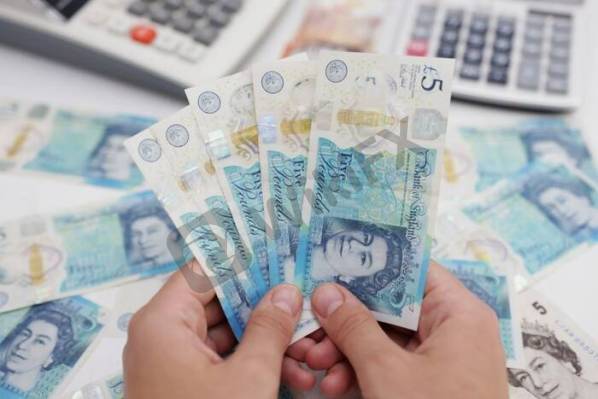The British pound remained stable on Wednesday as data revealed that in July, inflation reached its highest level in more than 40 years, putting pressure on the Bank of England to lower prices while raising the possibility of a more severe economic slump.
According to government statistics, consumer price inflation increased to 10.1% in July, its highest level since February 1982. According to a Reuters poll, experts predicted that inflation would increase to 9.8%. The Bank of England (BoE) is expected to raise interest rates by another half-point in September following a 50 basis point hike last month due to higher-than-expected inflation. According to data from Refinitiv, money markets are currently completely pricing in a 50 basis point rate increase from the central bank next month, with the possibility of a higher 75 basis point rate hike. By May of next year, traders are now now factoring in an additional 200 basis points of tightening, bringing the Bank Rate to 3.75%.
According to Refinitiv data, traders anticipated that interest rates would peak in March and then tighten another 150 basis points after that. Analysts claimed that even if inflation was at its highest point in decades, the outlook for the pound remained gloomy because front-loading rate increases raised the likelihood of a rough landing for the economy. According to Viraj Patel, global macro strategist at Vanda Research, “Sterling is heavily tied to UK recession concerns right now.”
He added that Wednesday’s data will probably prompt the BoE to tighten monetary policy more quickly and initially. “Today’s CPI figure highlights the UK’s stagflationary vulnerabilities. A risky currency like the pound would not necessarily be something you would want to hold during a recession. The pound was unchanged at $1.20945 at 11:05 GMT. Sterling was likewise unchanged against the euro at 84.02 pence after earlier reaching its highest level since August 4 at 83.90 pence. Following the release of the data, British two-year government bond yields soared to their highest levels since November 2008. According to Refinitiv data going back to late 2010, the difference between 2-year and 10-year gilt yields, which is occasionally seen as a warning of a recession, was at its most inverted or negative point ever at about minus 17 basis points. In general, longer-dated yields are higher than shorter-dated yields because investors want a premium to make up for the risk of investing in bonds with a longer maturity. This month, the BoE predicted that inflation would likely reach a peak of 13.3% in the fourth quarter, primarily as a result of the sharp increase in energy prices.
A five-quarter long recession, beginning at the end of this year, was also predicted by the central bank.
